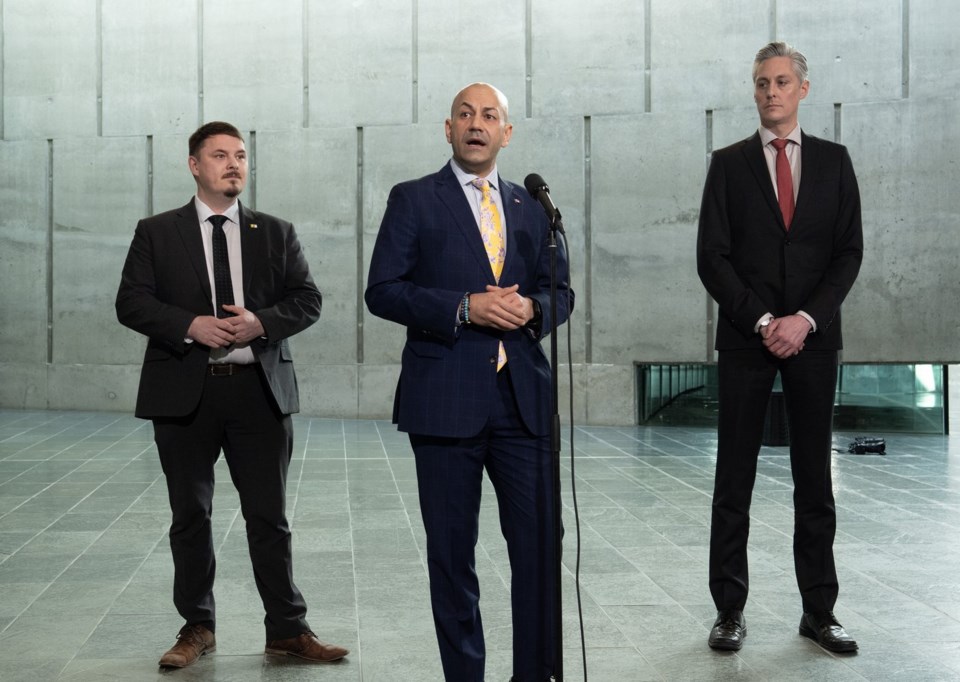The premiers of Canada's three territories say the country's push to remove internal trade barriers needs to consider the unique economic situation of the North.
Yukon Premier Ranj Pillai, Northwest Territories Premier R.J. Simpson and Nunavut Premier P.J. Akeeagok say they will be exploring the creation of a "territorial trade zone" that would make sure modern treaties with Indigenous people and the needs of the territories are recognized as trade barriers come down.
The premiers met this weekend in Yukon for their annual Northern Premiers’ Forum.
Pillai told reporters at a joint press conference Sunday that the territories are willing, where possible, to remove trade barriers but any conversations have to consider agreements that are in place with northern Indigenous governments.
Newly-elected Prime Minister Mark Carney has promised a plan to eliminate trade barriers between provinces and territories by Canada Day.
Pillai said that is a tight timeline for the North.
"We want to be at that table moving toward July 2, but in that short time frame, we (need to) have a lot of discussions, and there's some very significant, legally binding, constitutionally anchored agreements that we also have to have a look at," he said.
"I think it gives us an opportunity to be willing partners at the table, but it also gives us a chance to educate our other colleagues about what's unique here," he said.
Akeeagok said the Nunavut Land Claims Agreement has enshrined articles that give Inuit the right of first refusal on procurement and require consultation for any legislative change.
"We are very open in terms of breaking down the barriers, streamlining a lot of these processes, among other things," he said.
"But it requires us to be able to sit down with them and just talk and to be able to have a meaningful consultation with them."
Pillai said significant projects in the North already often require companies from large nearby provinces to be completed, which allows those companies to reap the benefits.
"If you're going to have us start to remove these opportunities for Northern companies, how are you going to, as well support the three territories in helping to grow this economy?" he said.
Simpson says even if the territories hold on to some of their exemptions under the Canada Free Trade Agreement, reducing any barriers to doing business will benefit the North and the rest of Canada.
"I'm very hopeful about the work that's happening, and I'm confident that we're going to see the benefits of it," he said.
This report by The Canadian Press was first published May 4, 2025
Ashley Joannou, The Canadian Press




